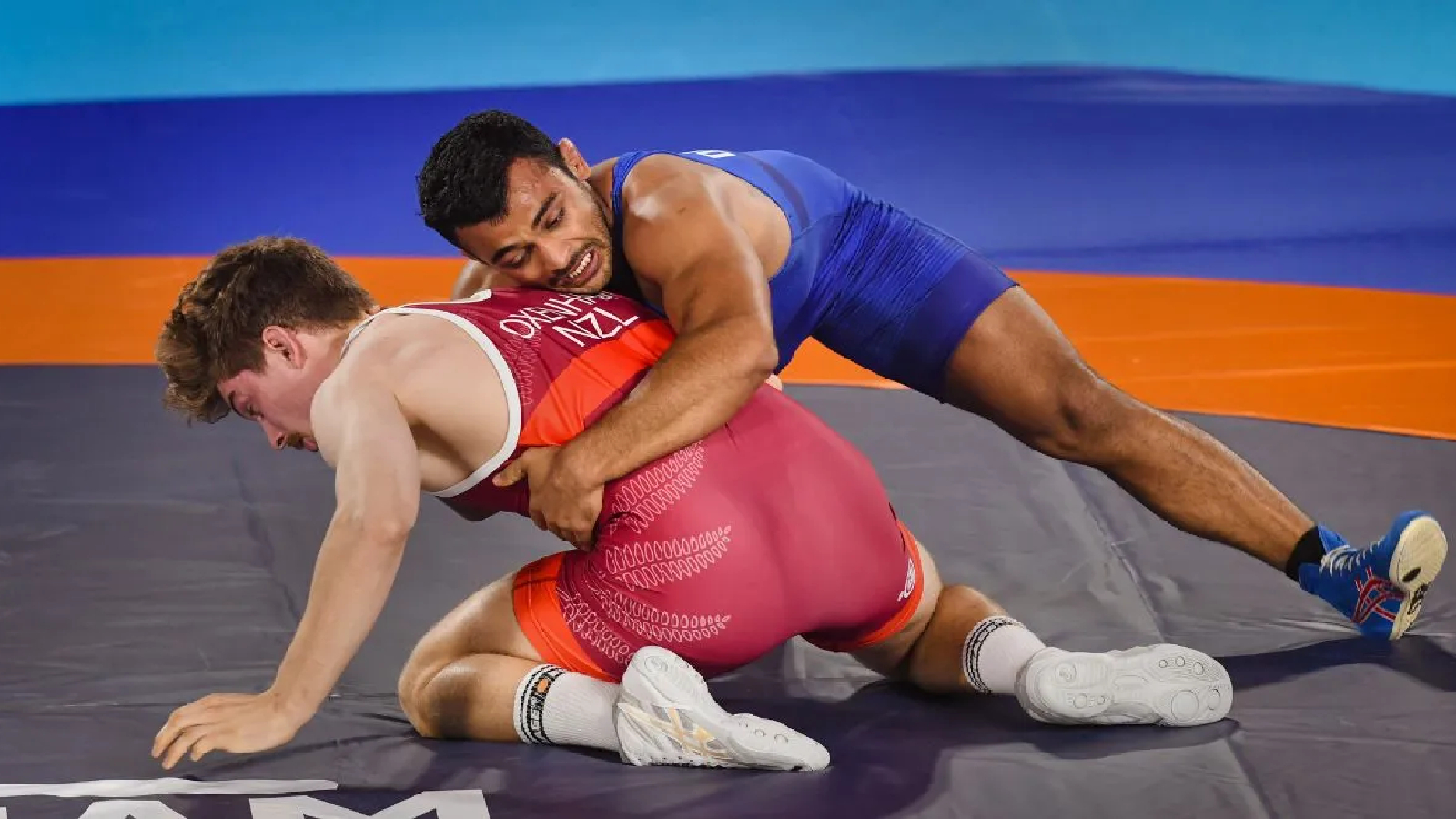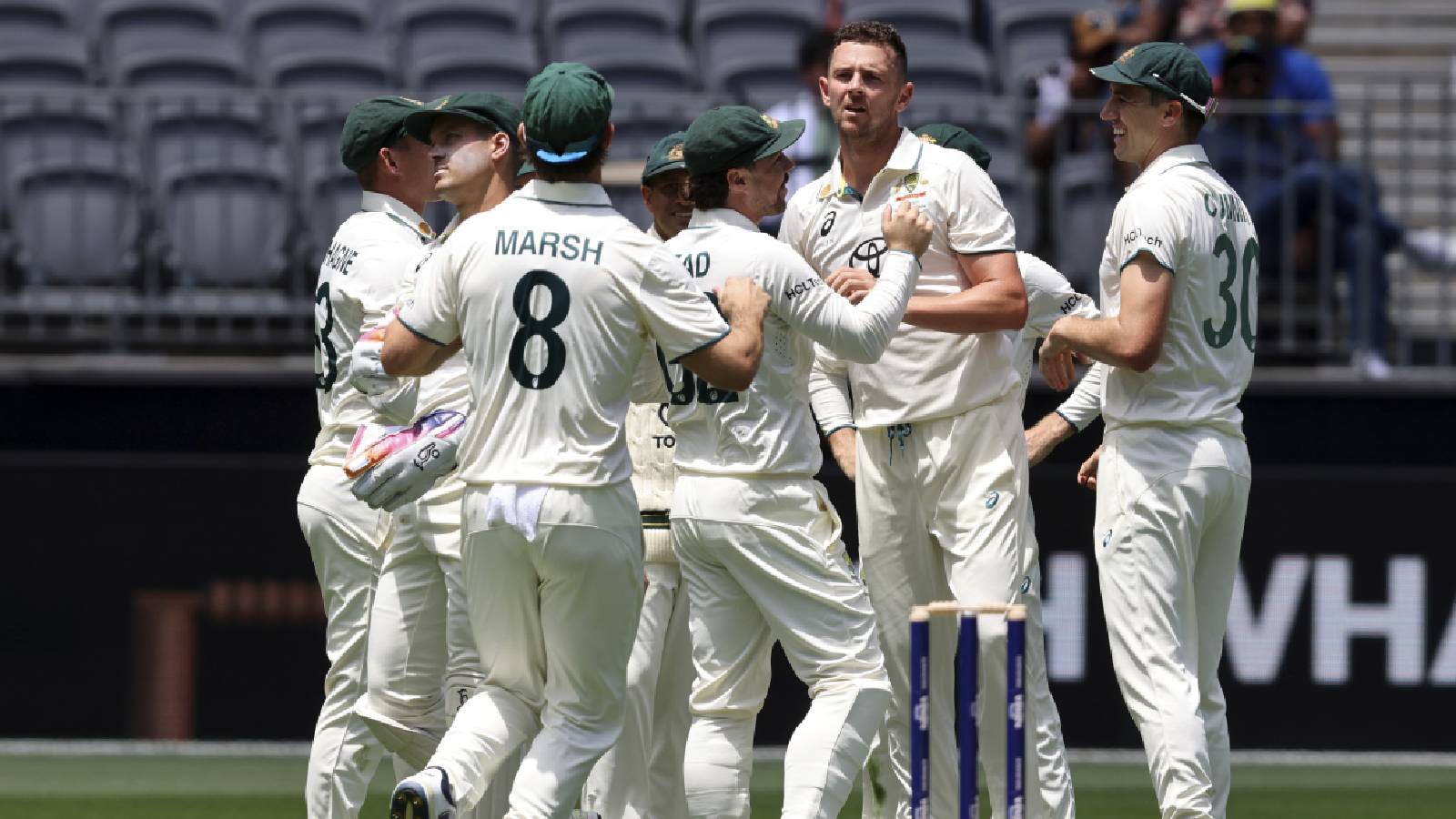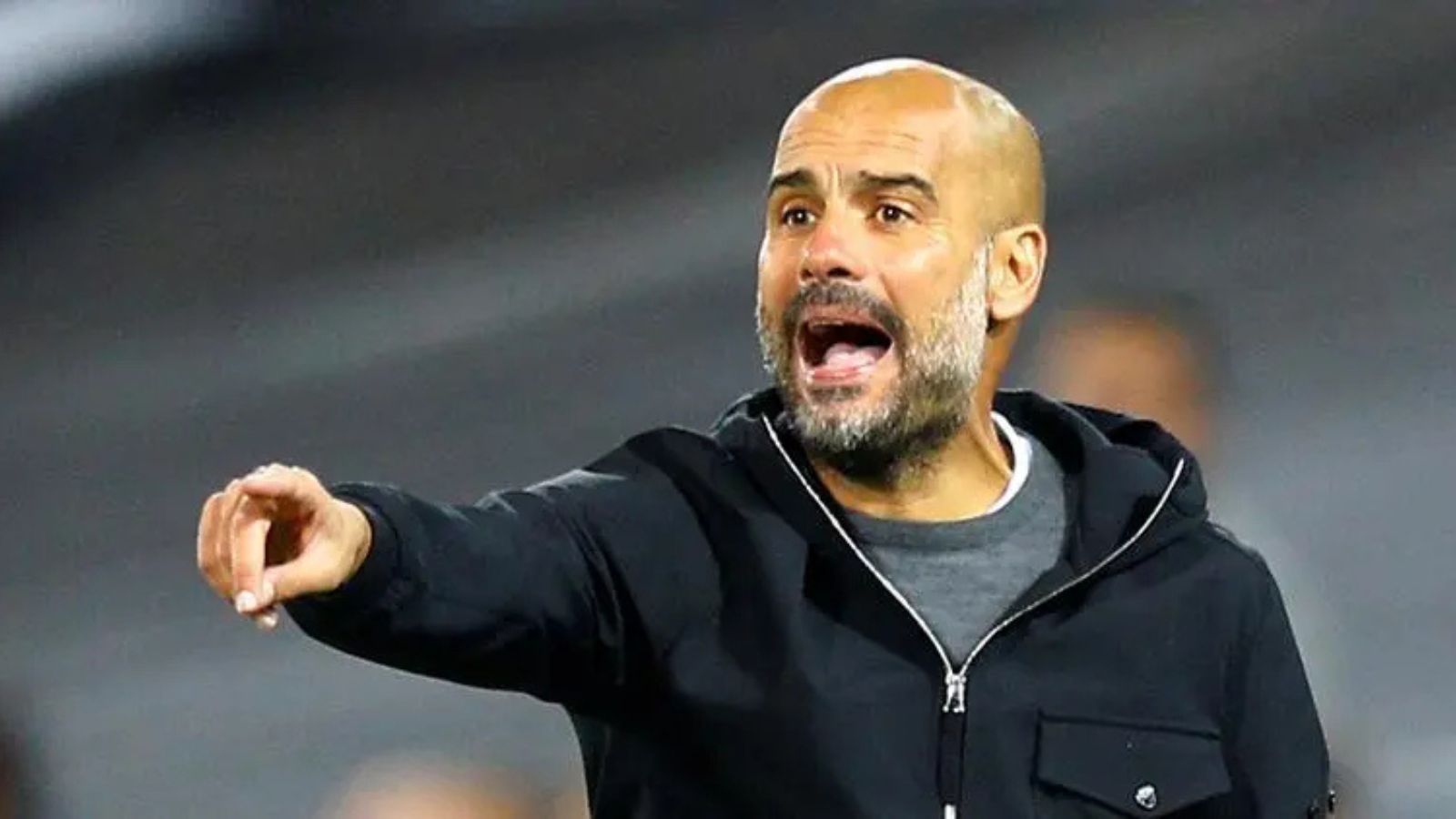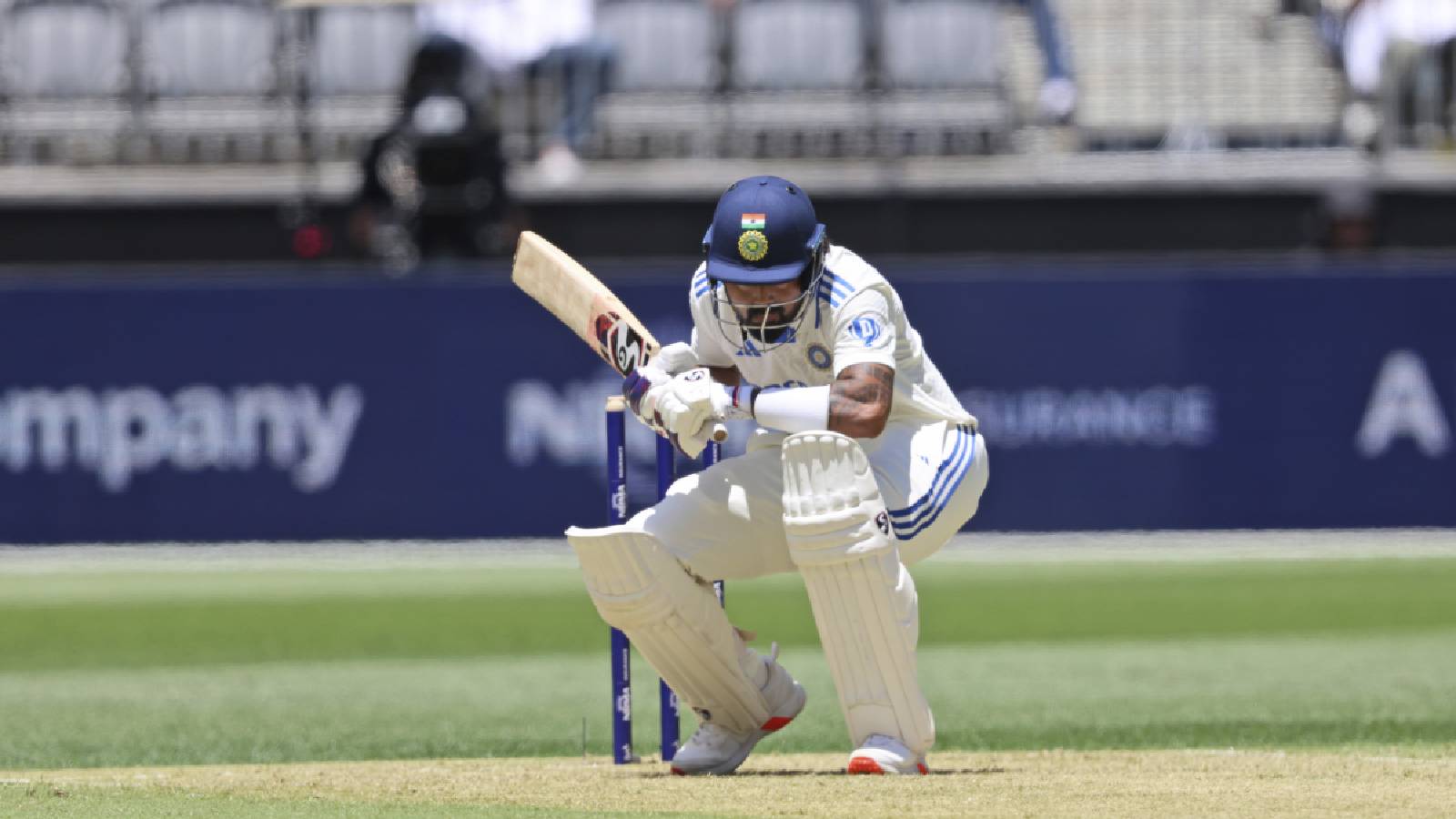For a while, there’s been a sense of foreboding over freestyle’s freefall.
Since independence, it’s been a wrestling style that’s fetched India most medals at the Olympics after hockey. In three out of the last four Games, at least one male wrestler has finished on the podium despite all the administrative imperfections and governance flaws.
That record is now in danger.
India is staring at the possibility of having zero representation in the event at the Paris Games, which begin on July 26. The World Olympic Qualifiers, starting in Istanbul on Thursday, is the last opportunity for the wrestlers to avoid embarrassment.
India could still win one or more quota berths this weekend, saving themselves the embarrassment of going unrepresented in men’s freestyle.
But that will be only after they’d have overcome many a hurdle – from their best-laid plans being undone due to frequent changes of mind by the federation to training by themselves because the governing body is yet to gain legitimacy domestically and has been unable to organise training camps and being starved of national and international competition.
Nothing exemplifies the sorry state of affairs more than the plight of Deepak Punia and Sujit Kalkal.
The duo couldn’t reach the Asian Olympic qualifiers in Bishkek as they were stranded at Dubai airport for two days before the tournament began, and didn’t want to leave anything to chance for the world event in Istanbul. They had decided to travel to Dagestan straight from Bishkek, and from there proceed to Istanbul.
Explaining Punia’s logic to train in Dagestan, Virender Dalal, who coached him in his formative years, said: “There he could continue training with some of the world’s best competitors. It would give him an opportunity to share the mat with wrestlers from different countries, remain in the same time zone and avoid unnecessary long travel.”
Kalkal, the under-23 Asian champion who is eyeing his first Olympics, was to join Punia for the same reasons. The Russian hub, after all, was their base even before the Asian qualifiers.
But a vacillating federation threw a last-minute spanner. “When they were planning to leave, the federation asked them to travel to India because they were considering holding fresh selection trials for the world qualifiers,” Dalal says. It was said that their presence at trials was mandatory and no exemptions would be given. Reluctantly, Punia and Kalkal ditched their Dagestan plans and travelled to New Delhi.
To their shock, days after returning, WFI announced that there would be no selection trials. “I met Deepak last Saturday and he was very disillusioned. Not just because of missing the Asian qualifiers for no fault of his own but also since he could not travel to Russia,” Dalal says.
Own-goals
Also, even in the last-chance saloon, wrestlers are having to make do with a coaching staff said to be clinging on to archaic methods.
It’s possible that once the Indian wrestlers take to the mat on the weekend, they might end up with one or more quota places. But huffing and puffing just to win a berth shows how Indian men’s wrestling finds itself pinned to the mat.
When they step on to the mat this weekend, Punia and Kalkal will hope to brush aside the natural and man-made setbacks to their qualification hopes.
They aren’t alone to have faced challenges in the build-up to qualification.
The turmoil in Indian wrestling since the protests began against former president Brij Bhushan Sharan Singh, accused of sexual harassment, has taken a toll on the sport.
“One of the key things that’s been missing is tournaments and camps,” says Arjuna-Awardee-wrestler-turned-coach Kripashakar Bishnoi. “At national camps, which were always held for a long duration, the best four wrestlers from the country in every category trained together everyday. They pushed one another for a spot in the team and the level of competition used to be healthy. Now, that’s missing.”

Due to the anomalous situation with regard to the WFI – which is recognised by the international body but not the sports ministry, which sanctions domestic camps – it hasn’t been able to assemble all wrestlers under one roof. Each one of them trains by themselves either at an academy or abroad.
“Training at an akhada isn’t the same as a camp. You aren’t always exposed to the top wrestlers and the intensity in sparring could be lacking. It shows when they compete,” Bishnoi says.
No immediate target
Then again, there hasn’t been a lot to compete for. Dalal, who runs an academy in Haryana that was home to a young Bajrang Punia as well as Deepak Punia, says the number of competitions since the protests began have drastically reduced.
“Earlier, there used to be national championships for all age groups, Federation Cup and ranking tournaments. All those took a hit last year,” Dalal says.
India’s participation in international meets also suffered. For instance, India was absent from the entry lists of Dan Kolov and Yasar Dogu tournaments, where they traditionally compete at the start of the season. They couldn’t because the dates for the selection trials for the Olympic qualifiers clashed with these events and participation in the former was mandatory.
A cursory look at the world body’s stats from 2022, the year before the protests, 2023, the year of protests, and the first five months of this year tells a story.
Sample this:
In 2022, Deepak Punia (86 kg category) competed in 20 bouts as per UWW records. In 2023, that fell to 14 and this year, he has fought just four so far.
Aman Sehrawat, who competes in 57kg, wrestled in 28 matches in 2022, 20 in 2023 and only 7 so far this year.
Kalkal, UWW records show, had 16 matches in age-group categories in 2022. He didn’t compete in a single match last year and in 2024 so far, the 21-year-old has fought only one bout, which he lost.
“Lack of matches has been an issue. Unless you fight, you don’t know what level you are at,” Dalal says. “That’s the reason why Deepak chose to train abroad. At least he’s training with some of the best in the world.”
And because of the federation’s indecision, Punia couldn’t even do that ahead of a make-or-break tournament for India’s male wrestlers.
I’m Manas Ranjan Sahoo: Founder of “Webtirety Software”. I’m a Full-time Software Professional and an aspiring entrepreneur, dedicated to growing this platform as large as possible. I love to Write Blogs on Software, Mobile applications, Web Technology, eCommerce, SEO, and about My experience with Life.






